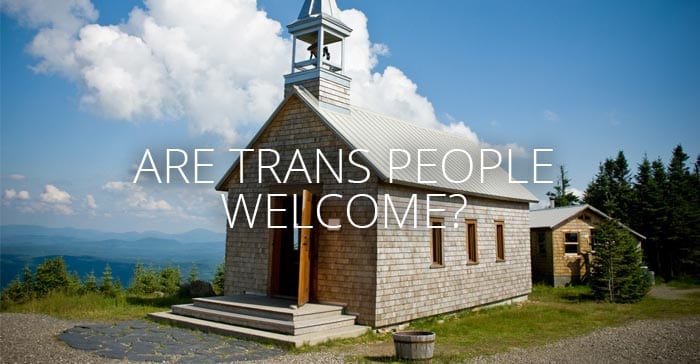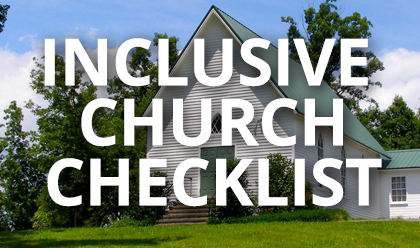Transgender Youth at Overnight Camps and Retreats

When I do trainings about transgender youth in particular (but sometimes LGBQ youth in general) one of the main questions has to do with overnight retreats/camps and lodging. As in “What the heck do we do with these queer and trans kids overnight”?
On the one hand I get it: we all want to protect our kids and make sure that camps and retreats are safe places for them. But there’s another reason: We also want to protect our churches/camps/institutions from allegations of neglect or abuse. And frankly, probably the root reason: We don’t want parents pissed at us.
Let’s dig in to all of this and at the end I’ll offer my own recommendations.
Safe places:
As leaders we have the responsibility to make our camps and retreats as safe as possible for all of the children and youth in our care. This means things like making sure the adults who are counselors can be trusted; that we run background checks to weed out people with predatory records and that we have safety policies in place (that we actually follow) that oversee the types of interaction that adults can have with youth. But it also means things like making sure we have lifeguards and that the equipment is in good working order. It means that we don’t do high risk activities without safety plans in place. And it means things like making sure that our teaching and preaching is welcoming and safe for all youth, that we take bullying and harassment from youth toward other youth seriously, that we encourage and uplift all of our students.
The health and well-being of our youth should be a priority in every aspect of our planning. When we reduce safety to just a conversation about who sleeps where we trivialize our overall responsibility.
Protecting the institution:
I get it, no one wants to get sued. And no one wants to get accused of untrue allegations of abuse. But the reality is that if you create and follow your safety policies, if you screen and train your adults, if you create an atmosphere that’s free of bullying, if you really, truly, protect your kids then you don’t have to worry about your institution.
Parents get pissed:
Look, I know it can be tough to deal with parents sometimes. Parents are protective. Parents are sometimes disorganized and distracted. They prioritize their own kids above all other kids.
And they bring their own prejudices and bigotry into conversations. Sometimes they are teaching their kids to internalize their own bigotry. Sometimes they claim that bigotry is a command from God.
My job as a youth leader isn’t to appease parents. It’s to create experiences for their youth and keep them safe doing them. It’s to provide what youth need (which, frankly, is sometimes not what they or their parents want). It’s to do faith formation and/or education. Which means that sometimes I’m going to teach kids something that goes against what their parents believe or teach. And if the parent doesn’t like it? There’s the door. Seriously. Now, if I have the chance I will also work to confront and educate the parents on their own misinformation. But if a parent really wants me to do something like teach their kids that homosexuality is wrong or that the Bible is inerrant or that trans people are sick? Not gonna happen. Not. Going. To. Happen. They can fire me if they’d like (though I would never work at a place that would expect me to hold or teach those views) but more likely those parents will need to find some other place to be.
My responsibility is always toward the most vulnerable youth in my group. Which is almost always going to be the queer and trans kids. My responsibility is to those kids no matter what parents say (especially if the parents are the parents of the queer/trans kids).
So this idea of parents getting pissed? Why are you doing this work? Who are you doing it for? If you can’t go to bat for your most vulnerable kids then you need to get a new job. Seriously.
Now for the recommendations:
1. Allow youth to self select where they stay. Seriously. Youth know where they need to be. They know where they will feel safest. Let them choose.
2. Consider creating a cabin or tent for trans and gender non-conforming youth. Not to isolate them, but to allow them to be in a place with other kids like themselves. But don’t force anyone to stay there. Make it an option and let youth self-select it.
3. Get rid of the emphasis on cabins. Sure, we all need a place to sleep but we can reduce the stress around cabins by only using them to sleep. Create other spaces for youth to have quiet times. Reduce the amount of time that youth spend in cabins. When you do activities, don’t separate kids by the cabins they are in. Make cabins about beds and sleep and that’s it. If you need to, make a rule that people change in the bathrooms, or that there is no nudity allowed in cabins.
4. Understand that youth who want to have sex or be intimate with each other are going to find a way to do that, and probably won’t choose to do it in the cabins. This applies whether they are straight or queer.
5. Understand that you have ALWAYS had queer/trans youth who have come to your camps and retreats. They have always bunked with other kids. They have always had to navigate showers and bathrooms and changing. And let me tell you something: being a queer/trans kid at camp can be terrifying. You learn how to keep your head down, to change without revealing any part of your body. You learn how to survive. Trust me, queer and trans kids are already navigating these spaces and they are doing it without your help and your consideration. You finally paying attention isn’t going to raise new issues, it’s simply going to make it easier for the kids who have already been attending your camp/retreats.
6. Understand that queer and trans kids are at a much higher risk rate for being abused, harassed, and bullied. AND that those oppressive behaviors by other people (youth or adults) put those same queer and trans kids at higher risk for depression and suicidal ideation.
The absolute bottom line: Who do you care the most about? I hope it’s the marginalized and oppressed kids who are probably dealing with a lot of fear at even being at your camp and retreat in the first place. You owe it to them to make them feel as safe and secure as possible, to deal with other families and campers prejudices and misinformation, and to, above all else, keep those trans and queer kids safe.
Photo Credit: Roger Smith Flickr via Compfightcc

